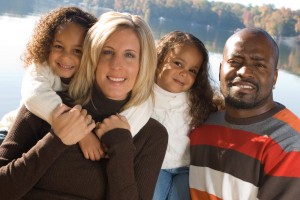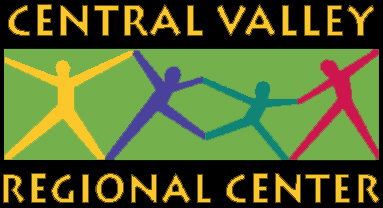Central California Children's Institute
 Enhancing Cultural Competence in Clinical Care Settings (4C)
Enhancing Cultural Competence in Clinical Care Settings (4C)
The 4C's training was a year-long training program in support of the social and emotional needs of young children and their families. This training was designed to increase capacity for professionals who work with young children to more effectively address their complex needs using evidence based practices and culturally responsive approaches. The training program held its last training session on November 20, 2016 with 69 participants enrolled in the program.
The 4C's project was framed around two models: The Neurorelational Framework (NRF) developed by Dr. Connie Lillas and "The Use of Self as a Cultural Being" developed by Dr. Valerie Batts.
The NRF is a tool that provides a holistic, psychobiological, and brain-based approach to assessment and treatment, holding both the resilience and dysfunction in parent-child relationships, and individual differences. While the NRF assists with a comprehensive approach to infants, children and their parents on a “micro” level, there is also a strong component to helping communities create more robust links across systems of care on a “macro” level. The cultural competency model, "Use of Self as a Cultural Being" engages participants in a multi-cultural process of change that promotes recognition, understanding and appreciation of differences at the personal, interpersonal, institutional/systemic and cultural levels.
The cultural competency model, "Use of Self as a Cultural Being" engages participants in a multi-cultural process of change that promotes recognition, understanding and appreciation of differences at the personal, interpersonal, institutional/systemic and cultural levels.
In addition to case presentations and practice sessions that integrated the above referenced models, other expert trainers were invited as faculty. They trained clinicians on sensory processing disorders in children and working with children and families who have experienced trauma. As a result of this advanced training, practitioners will become proficient in the application of the NRF to clinical cases, and will be able to apply the framework with a cultural lens that meets the unique needs of families.
In light of ongoing interest in the training program, we are currently seeking funding to launch a new cohort in 2017. If you or someone in your agency is interested in being placed on a waiting list, please send an email to Wendy Davis at wdavis@csufresno.edu.
.
Year 2 4C Session Handouts: 01/13/16 - 11/18/16
- Agenda
- Jessica Richard's PowerPoint Slides
- Valerie Batts PowerPoint Slides
- Ch. 5: The NRF in Infant and Early Childhood Mental Health
- Cultural Integration Guide
- Training Schedule
- Blank FEDL with 7 Levels
- In the Green Worksheet
Step 1:
2. Awake States with Stress Responses
3. Are you in the Green? (Color)
5. Awake States with Stress Responses
Step 1: Heart, Hand, Head
1. Step 1 Cheat Sheet - Heart, Hand, and Head
3. Interpersonal Modes with Modifications
4. Heart, Hand, and Head Personal Worksheet
5. NRF Links to Cultural Competency
Step 2:
2. Levels of Engagement With Ages
3. Levels of Engagement Without Ages
4. Blank FEDL
Step 3:
2. Four Brain Systems: Macro & Micro Levels
3. History Worksheet for the Four Brain Systems
* ALL HANDOUTS PROVIDED ON 02/25/16 **
** NO OTHER HANDOUTS PROVIDED**
- Agenda
- PowerPoint Slides
- Behavioral Continuum
- Brain Systems: Stress Triggers and Recovery Toolkits - Child
- Brain Systems: Stress Symptoms & Diagnostic Categories
- Brain Systems: Recovery Tools in Your Toolkit
- Four Brain Systems: Macro & Micro Level
- Group Discussion Questions
Reading Material:
NEUROCEPTION: A Subconscious System for Detecting Threats and Safety
- Agenda
- PowerPoint Slides
- Four Brain Systems: Macro & Micro Level
- Brain Systems: Stress Triggers & Recovery Toolkits - Blank
- Brain Systems: Stress Responses, Triggers, & Recovery Resources - Kai
- Brain Systems: Stress Responses, Triggers, & Recovery Resources - Kai's Stress Responses & Triggers
- Increasing Flexibility in Character Roles Across Emotional Themes
- Agenda
- PowerPoint Slides
- Blank FEDL Adapted by CL with 7 Levels
- Brain Systems Triggers and Toolkits - For Child
- Considering Cultural Awareness and the Use of Self
- Continuing the NRF/ Cultural Competence in Our Region
- Four Brain Systems History Checklist (Completed)
- Four Brain Systems History Checklist (Blank)
NO OTHER HANDOUTS PROVIDED
SCROLL UP
Year 1 4C Session Handouts: 01/2015 - 11/2015
Session 1: Friday, January 23, 2015
- Possible Regulation and Stress Response
- Circle of Security
- Awake States with Stress Responses
- Isolated Green, Red, Blue Combo
- Interpersonal Modes with Modification
- HHH Worksheet
- Awake States with Stress Responses
Reading Materials:
Infant Early Childhood Mental Health, Chapter 5
Session 2: Friday, January 30, 2015
8. Who we are at our Best/Worst (English)
10. Blank FEDL
Session 3: Friday, February 6, 2015
Reading Materials:
Chapter 6: Developing Trans-culturally Sensitive Theory and Practice
Chapter 2: Is Reconciliation Possible?
Racial Microaggressions in Everyday Life
Session 4: Friday, February 20, 2015
13. Brain Systems Triggers and Toolkits (yourself)
14. Brain Systems Triggers and Toolkits (your partner)
15. Brain Systems Triggers and Toolkits (your child)
16. Pathways Speech and Language Communications
17. Pathways Awareness Infant Motor Development
19. Do you know me? (teachers)
21. Sensory Parental Checklist
SCROLL UP
Session 5: Wednesday, March 18, 2015 - WEBINAR MEETING
26. Application of NRF to High Risk Community for System's Change
Session 6: Friday, March 20, 2015
Dr. Batt's PowerPoint Slides #1
Dr. Batt's PowerPoint Slides #2
Session 7: Friday, April 24, 2015
27. Blank FEDL
28. Brain Systems Triggers and Toolkits for Child
29. Heart, Hand and Head Patterns
30. Mapping: Macro and Micro Levels
31. Adverse Childhood Experience Scale
33. History Worksheet for the Four Brain Systems
Reading Materials:
Moving Away from WEIRD: Systems-Based Shifts in Research, Diagnosis, and Clinical Practice
Session 8: Friday, May 29, 2015
Rosemary White's PowerPoint Slides
Session 9: Friday, June 19, 2015
Rosemary White's PowerPoint Slides
Reading Materials:
Session 10: Friday, August 21, 2015
- NRF Casual Loop Diagram
- Blank FEDL
- History Worksheet for the Four Brain Systems
- Current Brain Capacities for Child and Parents
- Do you know me?
- Pathways Speech and Language Communication
- Pathways Awareness Infant Motor Development
- Anthony and Erica's Symptoms and Diagnosis
- NRF Macro and Micro Mapping
- NRF Four Brain Systems
Session 11: Friday, September 18, 2015
- Brain Systems Triggers and Tool Kits
- Increasing Flexibility in Character Roles Across Emotional Themes
- Step 1 - Revised Case Review Cheat Sheet
- Step 2 - Final Cheat Sheet
- Ego State Model's (Val's handout)
- Cultural Integration Questionnaire ( Val's handout)
Session 12: Friday, October 9, 2015
Jessica Richards' PowerPoint Slides
Cathy Pope's PowerPoint Slides
- Brain Systems: Stress Triggers and Recovery Tool Kits
- Brain Systems: Stress Responses, Triggers, and Recovery Resources
- The Neuro-relational Framework's Three Clinical Steps (Tree)
- Kai’s Stress Responses and Triggers
Session 13: Friday, October 23, 2015
Heart, Hand, Head (HHH) Slides
- Are you in the Green?
- Model Case Vignette Notes
- (3) Cheat Sheet for HHH
- (3) Cheat Sheet for Step One: Assessing Stress Responses and Stress Recovery
- (3) Cheat Sheet for Step Two: Assessing the Quality of the Relationship
- (3) Cheat Sheet for Step Three: Assessing Strengths and Vulnerabilities in the Four Brain Systems
- (4) Brain Systems: Stress Systems and Recovery Tool Kits
- (5) The Neurorelational Framework Triggers and Toolkit Menu
- (6) Mapping Patli
- (7) Mapping Out the Three Steps (K) - First Clip
- (8) Mapping Out the Three Steps (K)
Session 14: Friday, November 20, 2015
Connie Lillas PowerPoint Slides
Valerie Batt's PowerPoint Slides
TOP OF PAGE
Project Funded By:


“This project is funded by the Mental Health Services Act (MHSA) in partnership with the California Department of Mental Health and Department of Developmental Services, and First 5 Fresno County.”